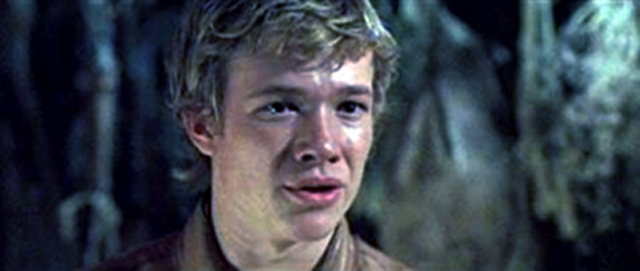Saturday, May 2, 2020
Eragon (2006)
I try to avoid talking about over-hyped films, not because I hate those films but because the conversation there is overcrowded. A couple of masterpieces came out last year that I won’t talk about for that reason. For other reasons, I don’t have much to talk about with the films of this year. I can talk about the politics of the situation, but not the films because I haven’t seen any.
So let’s go back a few years to a film that I inevitably must tear into sooner or later. I have genuine difficulty saying negative things about films due to my appreciation of the medium, and I only really hate the ones that are both terrible and profitable. Eragon was fraud on a grand scale.

The film sets out to ruin your taste for fantasy, from the Jeremy Irons opening narration, to the conversational resolution that looks like it was shot in a city park. Everyone knows the film was allegedly based on a book, but by the time you get to the end credits you’ll have forgotten that the book was actually a good read.
Ed Speleers plays the titular Eragon, who looks identical to his brother, played by Christopher Egan. In the book they were cousins, but in the film they are apparently twins. They have a playful fight scene wherein they roll around and hit each other with wooden swords. It’s an okay scene if you’re a teenage girl with a doppelganger fetish, in fact that’s one of the few contexts in which it makes sense. But if you’re going for that, at least do something more lewd that doesn’t feel like a gender-inverted The Simple Life.
The brother fucks off to fight in a war or something while Eragon hatches a secret dragon, and circus orcs burn down the farmhouse. Eragon is a human, despite his name, but he may have some elf blood in him from a few generations back. Jeremy Irons shows up and teaches Eragon elf magic, which is then used to defeat a scarlet-haired heavy metal demon named Durza, perhaps Robert Carlyle’s most charismatic performance. (Carlyle went on to play Dracula in the Castlevania video game series. He’s not known for subtlety.)
Manufactured fantasy is nothing new. If a rights-holding company can adapt a popular novel on the cheap and keep it safe for families, they might make their money back. In this case, they more than doubled their investment (on their tax reporting) but if you know about the money laundering that I’m alleging took place, the relative profit was likely an order of magnitude greater than reported.
I would like to point out that the unofficial video game adaptation, Iragon (”A story of romance, magic and bisexual sorceress”), looks a lot better.
If you read the final book in Christopher Paolini’s Eragon series, he clearly didn’t give a shit by that point. This flimsy installment came out a few years after the release of the movie, possibly a reaction to seeing the film adaptation critically crash and burn. Of course, all parties involved still made money, from the first book all the way through late-game sales and merchandising.